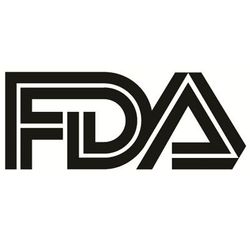
OR WAIT null SECS
Severe COVID-19 Outcome Risk Low for Vaccinated IBD Patients
Immunomodulators, incomplete vaccination, and non-mRNA vaccination were associated with a higher risk of adverse events for patients with IBD.
Fully-vaccinated patients with inflammatory bowel disease (IBD) are at a lower risk of severe COVID-19 outcomes, hospitalizations, and death than their unvaccinated counterparts.
A team, led by Emily Spiera, Icahn School of Medicine at Mount Sinai, identified outcomes and risk factors for hospitalizations, severe COVID-19 infections, and mortality in patients with IBD who are vaccinated against COVID-19.
There is not much data available on breakthrough COVID-19 cases in patients with IBD who are vaccinated. However, in the study presented during the Crohn’s and Colitis Congress 2022 Annual Meeting, investigators used data under from the Surveillance Epidemiology of Coronavirus Under Research Exclusion in Inflammatory Bowel Disease (SECURE-IBD) database to analyze outcomes in this patient group.
Analyzing Outcomes
Included in the analysis were patients with IBD who received at least 1 vaccine dose prior to their diagnosis of COVID-19. Vaccinations included mRNA (Pfizer and Moderna), adenovirus vector (CanSino, AstraZeneca, Sputnik, and Janssen), or inactivated SARS-CoV-2 (Sinovac) vaccines. The investigators also defined partial vaccination as not having received the full complement of doses for the vaccine.
The investigators sought main outcomes of hospitalization, death, and severe COVID-19, a composite of intensive care unit admission, mechanical ventilation, and/or death.
Overall, the team identified 141 cases. Of this group, 8.5% (n = 12) were hospitalized, 2.8% (n = 4) had severe COVID-19, and 0.7% (n = 1) died.
A Lower Risk
However, these numbers were significantly lower than a comparison group of unvaccinated individuals. Within this same time period, 9.3% of unvaccinated individuals were hospitalized, 1.9% had severe COVID-19 infections, and 1.2% died.
The investigators also looked at treatment type in evaluating outcomes for patients.
For example, approximately 75% of patients with IBD and COVID-19 following vaccination were on biologics, with around 33% taking immunomodulators.
They also found fewer hospitalizations occurred in individuals who completed the vaccine series compared to partially completing the vaccine series (5.7% vs 13.2%; P = 0.13).
Patients who received the mRNA vaccine series also had lower hospitalization rates than those who received the adenovirus vector (4.7% vs 22.7%; P = 0.01) or inactivated SARS-CoV-2 (4.7% vs 16.7%; P = 0.15) vaccines. Overall, just 2.9% of patients who completed the mRNA series were hospitalized.
Patients on biologic monotherapy were also less frequently hospitalized than patients on immunomodulator monotherapy (4.2% vs 27.3%; P = 0.03) or combination therapy (4.2% vs 10.0%; P = 0.36).
For severe COVID-19 outcomes, these were less common in the mRNA vaccine group than the adenovirus vector (0.9% vs 4.6%; P = 0.31) or inactivated SARS-CoV-2 (0.9% vs 16.7%; P = 0.02) vaccines groups.
For the 4 patients identified with severe COVID-19, 2 were taking tumor necrosis factor antagonists, 3 were taking azathioprine, and 1 had chronic lung disease.
The lone death occurred in a patient on triple immunosuppression with adalimumab, azathioprine, and systemic steroids.
“In patients with IBD, incomplete vaccination, non-mRNA vaccines, and immunomodulator use are associated with increased risk of adverse events during COVID-19 infections,” the authors wrote.
The study, “COVID-19 INFECTIONS IN VACCINATED PATIENTS WITH INFLAMMATORY BOWEL DISEASE: OUTCOMES AND RISK FACTORS FOR SEVERE DISEASE,” was published online by the Crohn’s and Colitis Congress.
Related Content:


